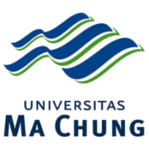DIGGING THE YOUTUBE VLOGGING IMPACT ON ENHANCING STUDENTS' SPEAKING PROFICIENCY
Abstrak
In this study, the authors implemented Clasroom Action Research by using Youtube vlogging to improve students' speaking proficiency in two cycles. The primary objectives of this study were to describe the implementation of using this media and to find out how much students' speaking proficiency improved. Observations, interviews, field notes, documentation, and speaking tests were used in collecting the data. The authors evaluated the English test results of each student for data analysis. The samples of this study were twenty students of X-E-1 (tenth grade) of SMAK.ST. Gabriel Maumere. Quantitative data were collected from test scores, while qualitative data were collected from the progress of student activities, pleasant classroom atmosphere and interesting learning environment. The average score in the pre-test was 50.6%, with only 25% success rate in class percentages. During the first cycle, eight students (40%) reached the minimum standard of criteria, resulting in an average class score of 65.1%. In the second cycle, 17 students (85%) exceeded the standard, and the class average increased significantly to 77.4%. Consequently, it can be deduced that creating Youtube vlogs can augment students' spoken proficie
Referensi
Ahmed, A. A. A., Hassan, I., Pallathadka, H., Keezhatta, M. S., Noorman Haryadi, R., Al Mashhadani, Z. I. & Rohi, A. (2022). MALL and EFL learners’ speaking: impacts of duolingo and whatsapp applications on speaking accuracy and fluency. Education Research International, 2022. https://doi.org/10.1155/2022/6716474
Apriyanti, D., & Ramadhan, S. (2018, December). Improving Students’ Public Speaking Skill through Instagram. http://linkinghub.elsevier.com/retrieve/pii/S1877042815030335.
Asiyah, T. (2023). Peningkatan keterampilan berbicara bahasa indonesia dengan penerapan model pembelajaran deep dialogue melalui pendekatan saintifik increasing Indonesian speaking skills using the application of the deep dialogue learning model through a scientific approach. Journal of Humanities And Social Studies 1(1). https://humasjournal.my.id/index.php/HJ/index
Combe, C., & Codreanu, T. (2016). Vlogging: a new channel for language learning and intercultural exchanges. In CALL communities and culture – short papers from EUROCALL 2016 (pp. 119–124). Research-publishing.net. https://doi.org/10.14705/rpnet.2016.eurocall2016.548
Davidson, O., & Uran, S. I. G. (2022). An analysis of the instructional design in English teaching and learning during and beyond Covid-19 Pandemic (A library research). Edunipa Journal, 3(1), 13-26. In Edunipa Journal ISSN Print (Vol. 3, Issue 1). English Education Study Program. https://orcid.org/0000-0002-9904-0293
Efendi, A. S. (2021). Menilai kemampuan berbicara bahasa inggris siswa melalui podcast (Vol. 1).
Ginting, D. (2021). Student engagement and factors affecting active learning in English language teaching. VELES Voices of English Language Education Society, 5(2), 215–228. https://doi.org/10.29408/veles.v5i2.3968
Ginting, D. (2022). Ethical research dilemmas and their implications in English language teaching studies. In Acitya: Journal of Teaching & Education (Vol. 4, Issue 1). http://journals.umkt.ac.id/index.php/acitya
Gunelius, S. (2021). How To Create A Vlog. Thoughtco.
Hamuddin, B., Julita, K., Rahman, F., & Derin, T. (2020). Artificial Intelligence in EFL Context: Rising Students’ Speaking Performance with Lyra Virtual Assistance. International Journal of Advanced Science and Technology, 29(5), 6735–6741.
Jalaluddin, M. (2016). English for Specific Purposes World Using YouTube to Enhance Speaking Skills in ESL Classroom Using YouTube to Enhance Speaking Skills in ESL Classroom (Vol. 17, Issue 50). https://www.youtube.com/user/TEDtalksDirector
Kartini, M., & Jubhari, R. R. (2021). Exploring the Effect of Instagram Assisted Vlogging on Students’ Speaking Proficiency. In International Journal of Innovative Science and Research Technology (Vol. 6, Issue 7). www.ijisrt.com
Kartini, M. (2021). Improving student’s speaking skill through talking chips strategy: A Pilot Study. Jurnal Ilmu Budaya, 9(2), 81-87.
Latief, M. R. A., Saleh, N. J., & Pammu, A. (2020). The effectiveness of machine translation to improve the system of translating language on cultural context. IOP Conference Series: Earth and Environmental Science, 575(1). https://doi.org/10.1088/1755-1315/575/1/012178
Liwun, M. Y., & Alinda, M. (2021). Improving students’ speaking ability by using picture media at tenth grade of Sma Negeri 1 Maumere in the academic year of 2020/2021. In English Education Study Program (Vol. 2, Issue 1).
Lestari, N. (2019). Improving speaking skill by vlog as learning media: the EFL Students perspective. International journal of academic research in business and social science Vol 9 No 1, 915-925
Misesani, D., Janggo, W. O., & Wuwur, M. S. N. (2020). Need Analysis in ADDIE Model to Develop Academic Speaking Materials. Ethical Lingua: Journal of Language Teaching and Literature, 7(2), 438–446. Https://Doi.Org/10.30605/25409190.226
Niga, E., & Janggo, W. O. (2023). An analysis of students’learning styles of English in language classes at Chatolic private school of St. John Paul II Maumere in academic year of 2018/2019. Edunipa Journal, 3(3), 49-74.
https://edunipa.nusanipa.ac.id/index.php/ednp/article/view/94/56
Nishanthi, R. (2018). The importance of learning English in today world. International Journal of Trend in Scientific Research and Development, 3(1), 871-874.
https://doi.org/10.31142/ijtsrd19061
Putri, F. H. (2019). Youtube for self-regulated language learning: An Efl Perspective (Vol. 12, Issue 2). https://ejournal.radenintan.ac.id/index.php/ENGEDU
Sari, A. B. P., & Iswahyuni, D. (2019). The Students’ Speaking Anxiety On The Youtube Video Project In Efl Learning In Indonesia by (Vol. 8, Issue 2). https://fkip.ummetro.ac.id/journal/index.php/english
Sileyew, K. J. (2019). Research design and methodology. Cyberspace, 1-12.
https://books.google.co.id/books?hl=id&lr=&id=eqf8DwAAQBAJ&oi=fnd&pg=PA 7&ots=cKV55TifO9&sig=vvWL7SopzLVeXNx8ZHtOXPOneUU&redir_esc=y#v=onepage&q=quali&f=false
Tristiana, R., & Swondo, A. P. (2020). The effect of youtube content making on students’ speaking skill. In Jurnal FISK (Vol. 1, Issue 1).
Yumelking, M., Eni, G. D., & Gani, F. (2020). Improving speaking Skill through discussion Debate Strategy of fourth Semester students of English Education Study Program of Nusa Nipa University in the Academic Year of 2019/2020. International Journal of English Literature and Social Sciences (IJELS), 5(6).https://doi.org/10.22161/ijels.56.38
Yuniar, C. R., Astuti, U. P., & Furaidah. (2021). The use of social and affective strategies to improve the 7th graders’ speaking participation and performance. JoLLA: Journal of Language, Literature, and Arts, 1(3), 295–306. https://doi.org/10.17977/um064v1i32021p295-306
Open Access Policy
This is an open access journal which means that all content is freely available without charge to the users or their institution. Users are allowed to read, download, copy, distribute, print, search, or link to the full texts of the articles, or use them for any other lawful purpose, without asking prior permission from the publisher or the author. This is in accordance with the BOAI definition of open access.
![]() This work is licensed under a Creative Commons Attribution-ShareAlike 4.0 International License.
This work is licensed under a Creative Commons Attribution-ShareAlike 4.0 International License.

















